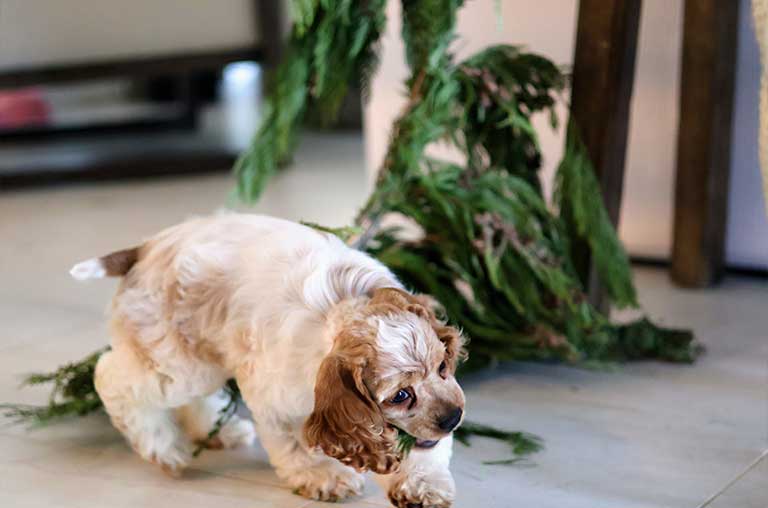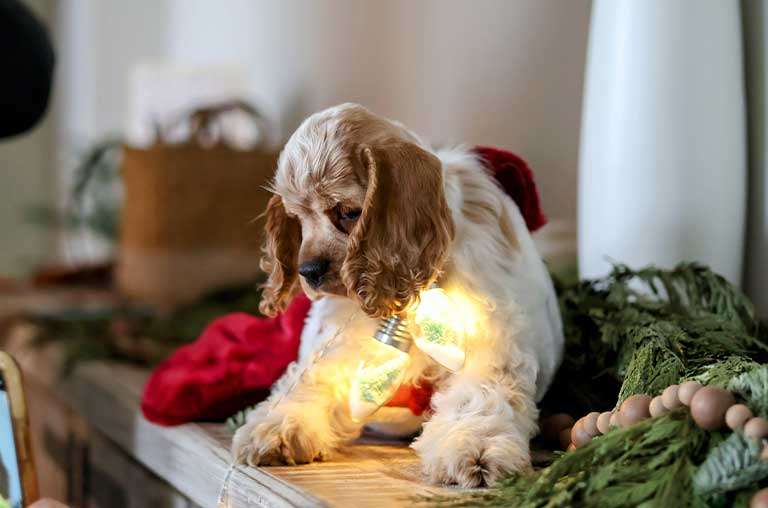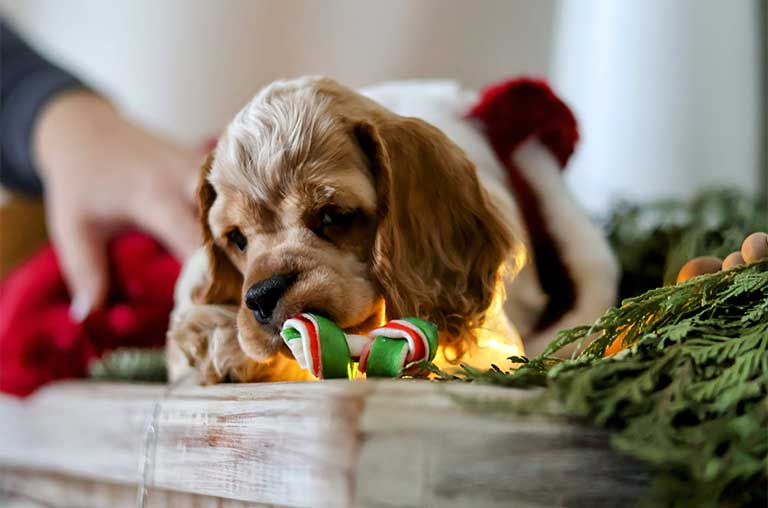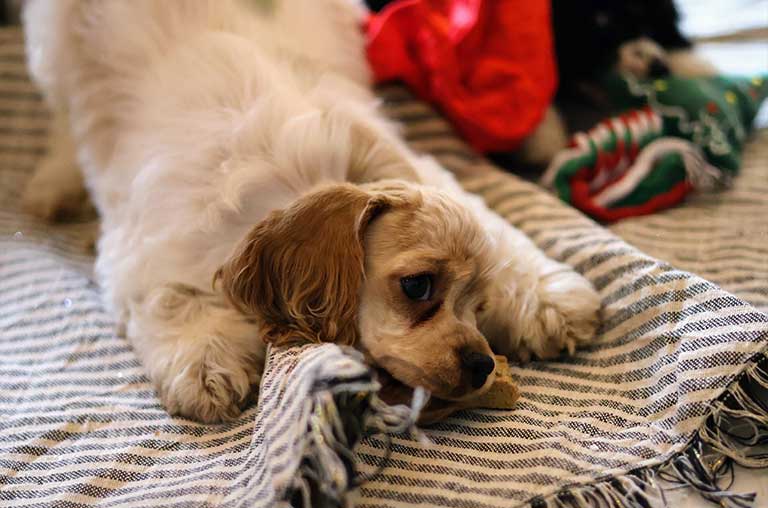You may know that some dogs develop a nasty habit of coprophagia, and dog owners are tired of asking – ‘how to stop a dog from eating poop’. This behavior can be quite concerning for pet owners, not only because it is unpleasant but also because it can lead to health issues for both the dog and the people around them. This article will discuss some effective ways how to stop a dog from eating poop
Coprophagia, or the behavior of dogs eating their own feces or the feces of other animals, is relatively common and often puzzling. But the behavior should not be ignored & requires close observation. While it may be unsavory, coprophagia is generally not harmful to dogs. However, it’s important to discourage this behavior as much as possible to prevent the spread of parasites and other diseases. Providing your dog with a well-balanced diet and plenty of mental and physical stimulation can help curb this behavior.
Why Does Dog Eat Poops?
There are several reasons why a dog may engage in coprophagia, including:
Boredom
Dogs left alone for long periods may become bored and seek ways to entertain themselves, including eating poop. This is more common in dogs that do not get enough exercise or mental stimulation. Regularly plan for a run with your dog as it is a great way to get exercise for both you and your furry friend.
Nutritional deficiencies
Dogs may eat feces to obtain nutrients that are missing from their diet. First, it could be a sign of a nutritional deficiency. If a dog isn’t getting enough nutrients from their food, it may try to supplement its diet by eating feces. So always buy recommended food for your pet to meet their nutrition demand.
Instinct
In the wild, eating feces can help keep the environment clean and free of parasites. Dogs are scavengers by nature and have been known to eat anything that they come across.
Stress or anxiety
Some dogs may engage in coprophagia as a way to self-soothe when they are feeling stressed or anxious. Stressed or anxious dogs may engage in coping behaviors like eating poop. This can happen if the dog is left alone for long periods or if there are sudden changes in their environment.
Medical issues

Some medical conditions can cause dogs to have a voracious appetite and eat feces.
Malabsorption
If your dog’s body isn’t absorbing enough nutrients from its food, it may feel the need to eat feces to get the nutrients it needs.
Pancreatic insufficiency
It occurs when the pancreas doesn’t produce enough digestive enzymes, leading to undigested food in the dog’s stool. The undigested food may still contain some nutrients, which the dog may try to obtain by eating its poop.
Intestinal parasites
Parasites such as hookworms, roundworms, and whipworms can cause diarrhea and malabsorption, leading to coprophagia.
Exocrine pancreatic insufficiency
This is a condition where the pancreas is unable to produce enough digestive enzymes to break down food. As a result, the dog may experience malnutrition and may try to eat poop to obtain missing nutrients.
Hyperthyroidism
Dogs with an overactive thyroid gland may experience increased hunger and may eat poop in an attempt to satisfy their appetite.
Behavioral issues
In some cases, coprophagia may be a behavioral issue. Dogs that are kept in small or confined spaces may eat their own feces out of boredom or stress. Similarly, dogs that are punished for defecating in inappropriate places may try to hide the evidence by eating their feces.
It could be a behavior learned from their mother. Mother dogs will often eat their puppies’ feces to keep their den clean and free of predators. Puppies who observe this behavior may imitate it as they grow older.
Instinctual behavior
In the wild, canines may eat feces as a way to clean up their dens and prevent predators from tracking them. This instinctual behavior may still be present in domestic dogs.
Attention-seeking behavior
Some dogs may eat poop as a way to get attention from their owners. Dogs crave attention and may resort to undesirable behaviors like eating poop to get it. Dogs may eat poop as a way to get attention from their owners. This can be especially true if the dog has learned that their behavior results in a reaction from its owner, even if it is negative.
Will my Dog get sick after eating poop?

There is a possibility that your dog may get sick after eating poop, depending on various factors such as the type of poop consumed and the overall health of your dog. Eating poop, also known as coprophagia, is not a healthy behavior for dogs and can lead to the ingestion of harmful bacteria, parasites, and other pathogens that may cause gastrointestinal problems such as vomiting, diarrhea, and stomach upset.
In some cases, eating poop can also lead to the transmission of diseases, especially if the poop comes from an infected animal. Additionally, repeated coprophagia can lead to nutritional deficiencies and behavioral issues.
What Research Says
Dogs sometimes consume feces, a practice known as coprophagia, although the prevalence of this habit varies significantly depending on the research and the group of dogs being examined. Here are some numbers based on the research that is currently available:
- The prevalence of canine coprophagia has been estimated to range from 16% to 57% during the course of a dog’s lifetime.
- Studies have shown that up to 80% of puppies exhibit coprophagia, which is more common in puppies than in adult dogs.
- Certain breeds are more prone to coprophagia than others.
- Male and female dogs have the same levels of coprophagia, with no discernible gender differences.
What Are the Risks of Dogs Eating Feces?
A dog runs the risk of consuming the eggs of intestinal worms and possibly hazardous bacteria when he consumes the excrement of another animal, particularly another dog or cat. A veterinarian should do routine fecal analyses on a dog that is known to consume the waste of other animals.
The filthy breath you have to smell is maybe the worst side effect of a dog eating excrement. Although home dental care can help, it is recommended to avoid stool-eating altogether.
How to stop a dog from eating poop

Although this habit may not necessarily harm your dog, it can be unpleasant and unhygienic. Here are some steps you can take to stop your dog from eating poop:
Consult with a veterinarian
First, you should take your dog to the veterinarian to rule out some underlying health problems that may be causing the behavior. In some cases, dogs may eat poop due to nutritional deficiencies or gastrointestinal issues.
Keep your dog’s living area clean
Ensure you regularly clean up your dog’s living area, including the yard and any indoor spaces. This will prevent your dog from having access to poop and discourage them from developing the habit.
Train your dog to come when called
Teaching your dog to come when called can be a helpful way to stop them from eating poop. By calling your dog away from the poop and rewarding them for coming, you can redirect their attention and encourage them to avoid the behavior.
Use positive reinforcement
Positive reinforcement can be an effective way to stop your dog from eating poop. When you catch your dog avoiding poop or ignoring it, reward them with praise and treats. This will reinforce good behavior and encourage them to continue to avoid poop.
Use deterrents
Several products can help deter dogs from eating poop, including supplements that make the poop taste bad or sprays that contain bitter-tasting compounds. However, it’s important to note that these products may not be effective for all dogs and may have side effects.
What to put in dog food to stop eating poop
It is undoubtedly unpleasant to see your dog consume crap. It’s disgusting and unhygienic, and your dog may become ill from eating too much of it. However, there are some ingredients you can include in your dog’s diet to prevent them from eating its own waste.
Probiotics

Adding probiotics to your dog’s diet can help improve their gut health and reduce the chances of them being interested in eating poop. Probiotics can also help reduce any digestive issues that may be causing the behavior.
Supplement to stop dog eating poop
An effective method for preventing a dog from eating its feces is vitamin B. Food may be less tempting to your dog since vitamin B aids in the breakdown of the vital components in food. Supplements for vitamin B are widely available at pet stores and online. Follow the vitamin B packaging directions and give your dog the required amount.
How to Stop Dog from Eating Poop Home Remedies
Here are some home remedies you can try to stop your dog from eating poop:
Pineapple to stop dog from eating poop
Add pineapple to your dog’s diet. Pineapple contains an enzyme called bromelain, which can make your dog’s poop taste less appealing.
Use pumpkin to stop dog eating poop
Add canned pumpkin to your dog’s food. Pumpkin is a great source of fiber, and it can help your dog’s digestive system function properly. This can make your dog less likely to eat poop.
Bananas to stop dogs from eating poop
Bananas are a healthy and tasty fruit that many dogs enjoy. Some pet owners have reported success in stopping their dogs from eating poop by feeding them bananas as a snack. The theory behind this approach is that the sweetness and aroma of bananas can mask the unpleasant smell and taste of feces, making them less attractive to dogs.
Meat Tenderizers
Give the dog food that contains meat mallet, canned squash, or similar deterrent. Although these things taste great when consumed, dogs do not enjoy the flavor of their poop.
FAQ
1. How Does Pineapple Stop Dogs from Eating Poop?
According to research, this enzyme in pineapple changes the poop’s fragrance. Using of pineapple can eliminate the attractiveness of the poop to dogs.
2. Do Bananas Help Dogs Not Eat Poop?
Due to the lack of thiamine, widely known as Vitamin B1, dogs might grow a habit of eating poops. This approach is logical because their diets are deficient in vitamins and minerals. An adequate amount of bananas in a dog’s daily diet can help it not eat the poop.
3. How Do I Stop My Dog From Eating Dog Poop Naturally?
Dogs eating their poop or the poop of other dogs is a common behavior known as coprophagia. While it is a natural behavior for dogs, it can be gross and potentially harmful to their health if they ingest bacteria or parasites.
Here are some natural ways to help prevent your dog from eating poop:
- Keep your dog’s environment clean.
- Feed your dog a well-balanced diet
- Add digestive enzymes to your dog’s diet
- Add a taste deterrent
- Increase exercise and playtime
4. Should You Punish a Dog for Eating Poop?
No way, to solve this issue; using punishment is forbidden. Punishment is extremely unlikely to be effective and might eventually worsen the issue.
5. Why is My Dog Obsessed with Eating Poop?
According to the American Kennel Club, dogs may consume their waste for various reasons, including fear, attention, loneliness, confinement, or improper association with food. Some dogs who have experienced severe punishment may consume their waste to avoid further punishments.
Conclusion
while coprophagia may seem like a disgusting and abnormal behavior to humans, it is a behavior that is relatively common in dogs and can have a variety of causes. It is important to work with a veterinarian and a certified animal behaviorist to identify and address any underlying issues that may be contributing to the behavior.
While coprophagia can be challenging to address, it is possible to help your dog overcome this habit with the right approach. By implementing positive reinforcement, providing a healthy diet, and seeking professional help, if necessary, you can help your furry friend break free from this unappetizing behavior and lead a happy, healthy life.

Leave A Comment